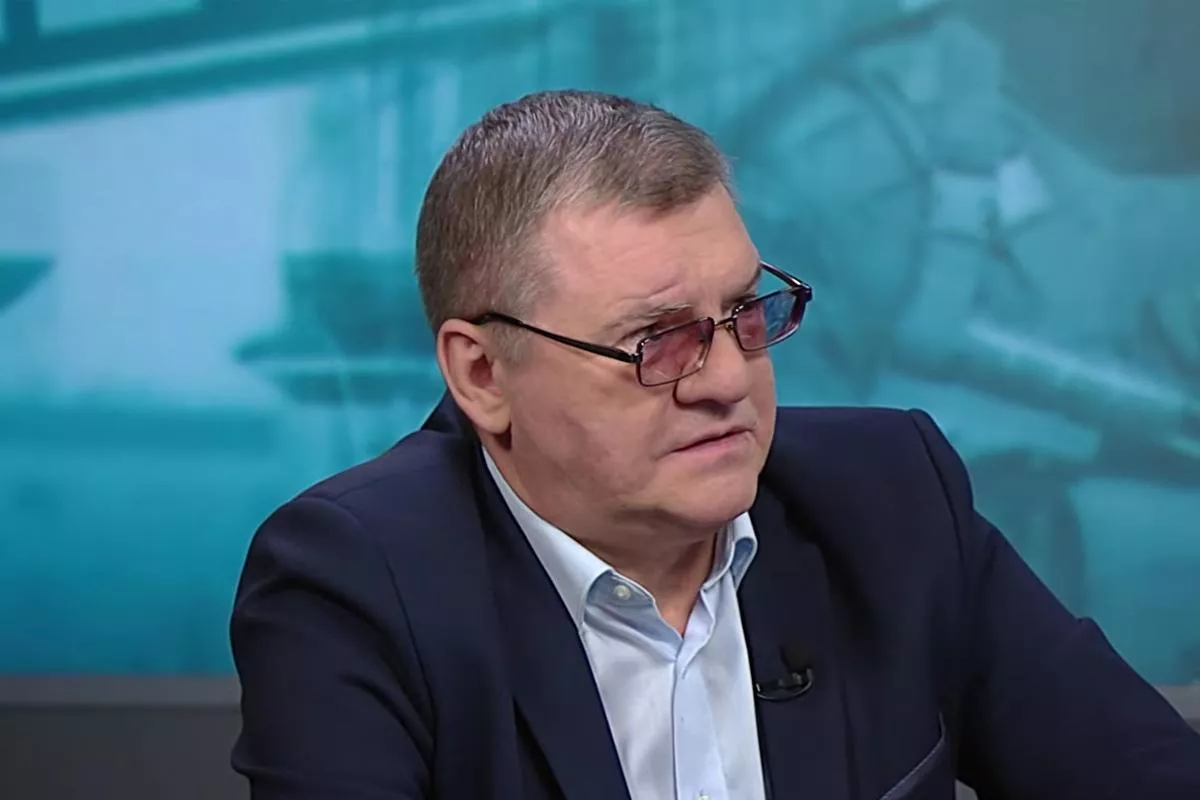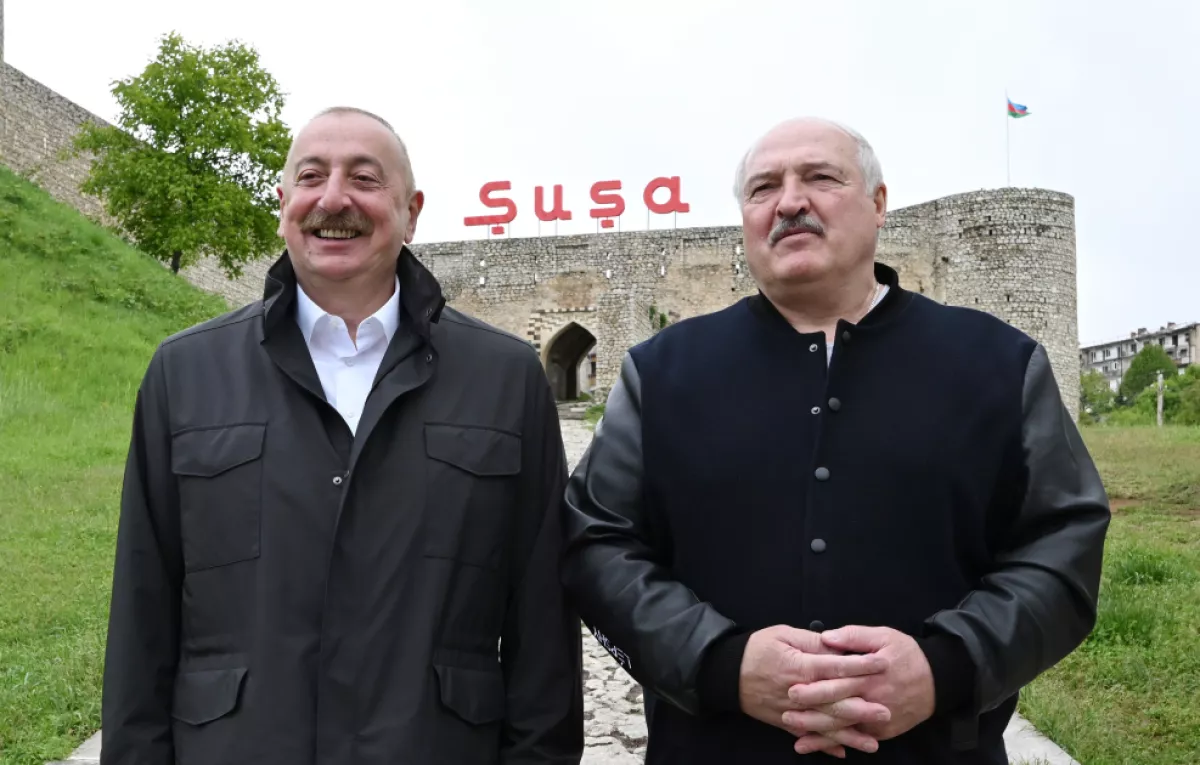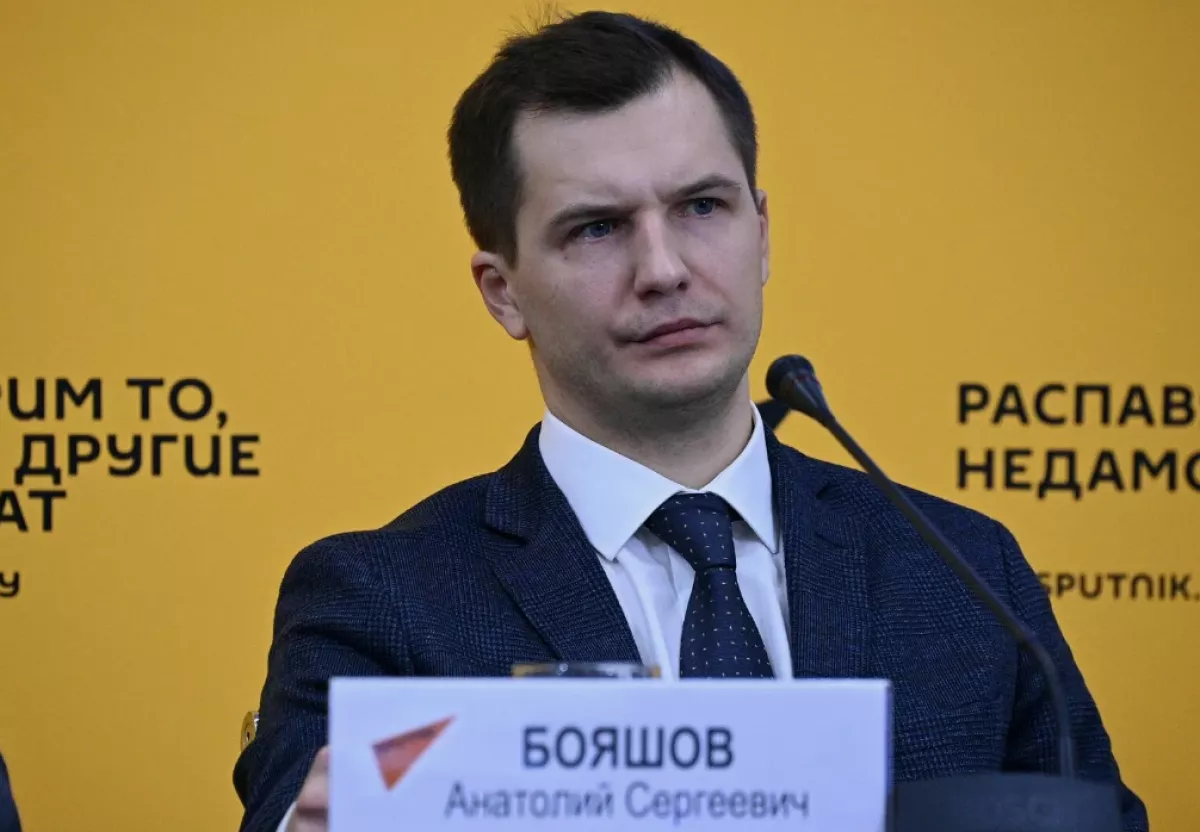Azerbaijan-Belarus: From shared interests to military cooperation Expert opinions
Belarus is ready to continue developing a military partnership with Azerbaijan, according to the Chief of the General Staff of the Armed Forces of Belarus, First Deputy Minister of Defense Major General Pavel Muraveiko, who attended the 5th anniversary Azerbaijan International Defense Exhibition ADEX-2024 in Baku. As noted by Muraveiko, cooperation between Belarus and Azerbaijan in the military-technical field is of a strategic nature.
"We are very pleased to study Azerbaijan's experience, whether it be military construction, the mastering of modern military equipment, or conflict resolution. The development of our ties in this area is significantly influenced not only by military structures but also by the friendly relations existing between the heads of state. These friendly relations allow us to move forward," emphasized Muraveiko.
The prospects for military-technical collaboration between Baku and Minsk were further discussed by a Caliber.Az correspondent with Belarusian experts.

According to Belarusian military expert and retired Colonel, Professor Alexander Tikhansky from the Russian Academy of Military Sciences, Armenia is currently, unfortunately, a partner of Belarus within the Collective Security Treaty Organization (CSTO) and Eurasian Economic Union (EAEU). However, given recent statements from Prime Minister Pashinyan and the Western orientation of his government, Belarusian authorities have long been committed to strengthening ties with Azerbaijan. Tikhansky emphasized that Baku is indeed one of Minsk's key partners in military-technical cooperation (MTC). Notably, a formal agreement has been signed between the State Military-Industrial Committee of the Republic of Belarus (SMIC) and the Ministry of Defense Industry of the Republic of Azerbaijan.
"I would like to remind you that over the past 20 years, Azerbaijan has been a leader in purchasing various types of weapons from Belarus. It ranks first in the acquisition of tanks and artillery, second in armoured vehicles, and third in combat aircraft. Furthermore, in October 2020, during the height of the Second Karabakh War, Azerbaijani President Ilham Aliyev, in an interview with the French newspaper Le Figaro, named Belarus alongside Russia, Türkiye, and Israel as one of the main suppliers of equipment and armaments for the Azerbaijani army. According to expert estimates, the total value of Belarusian-Azerbaijani arms trade deals has long surpassed $1 billion.
Belarus has attempted to maintain partnership ties with Armenia in the military sphere; however, the material capabilities of the Armenian side for potential cooperation with Belarusian defence enterprises are objectively much lower than those of Azerbaijan. It’s important to note that since November 2020, the position of Belarusian ambassador to Azerbaijan has been held by Colonel General Andrei Ravkov, a former Minister of Defense and State Secretary of the Security Council of Belarus. In this context, the Belarusian expert community generally views this appointment as a sign that President Alexander Lukashenko has once again underscored the trust-based nature of relations with Ilham Aliyev and the significance of cooperation between the two countries in defense and security matters. It is also quite symbolic that Ravkov's successor as Minister of Defense of Belarus, Lieutenant General Viktor Khrenin, chose Azerbaijan for his first official foreign visit.
According to available information, both sides are currently focusing on bilateral projects aimed at developing technology and armaments. Agreements on this were reached during the visit of the Azerbaijani Minister of Defense Industry to the Belarusian military exhibition MILEX-2021, and discussions will continue in Baku, where the ADEX-2024 exhibition is currently taking place. At this exhibition, Belarusian arms manufacturers showcased their developments, including the Sapphire grenade launcher and the 9A33MB combat vehicle, designed for the destruction of aircraft, helicopters, cruise missiles, and drones. Additionally, all-terrain armoured vehicles, a battery command post, and artillery transport vehicles were also presented.
"It is important to emphasize that many aspects of military-technical cooperation (MTC) are classified; however, even the publicly available information suggests a long-term and close collaboration between Azerbaijan and Belarus in this area," said Tikhansky.
The military expert noted that the significant successes of Baku, which managed to restore full control over Karabakh in September 2023, were positively received by the Belarusian leadership. In his opinion, following Baku's victory in the Armenian-Azerbaijani conflict, the ties between Belarus and Azerbaijan have likely strengthened, while the already complex relationship between Minsk and Yerevan will only worsen.
"Let us recall that during President Lukashenko's visit to Baku in May of this year, he remarked, ‘the difficult time has come to revive these lands and return the people.’ He emphasized that this effort would require considerable time and effort, and that Minsk is prepared to offer support in this endeavor.

Logically, Azerbaijan, having gained momentum for development following its victory in the war, is interested in restructuring its existing military-technical cooperation (MTC) with Belarus—from modernizing Soviet-era equipment and importing Belarusian arms to engaging in joint R&D (research and development), which represents a higher level of collaboration. Moreover, based on statements from official representatives, including President Alexander Lukashenko, the Belarusian side is ready to meet any requests from its Azerbaijani partners. This indicates that Baku and Minsk are potentially prepared to deepen their cooperation in the military-technical sphere and enhance their interactions," Tikhansky asserted.

At the same time, Anatoly Boyashov, a candidate of political sciences, PhD, and chief advisor at the Belarusian Institute of Strategic Studies, believes that the expansion of military-technical cooperation demonstrates the reliability of the partnership between Minsk and Baku. This partnership is primarily driven by the shared national interests of both countries.
“For both Azerbaijan and Belarus, the consistency of foreign policy is fundamentally important. Minsk is interested in stable regional development, the uninterrupted functioning of transport and communication corridors, and elevating economic growth to a new level. The national prosperity and defence capabilities of Belarus and Azerbaijan are crucial for the stability of their respective regions. Therefore, the intensification of military-technical cooperation is both logical and timely. A high level of defence capability helps to reinforce a peaceful development agenda and prevent provocations.
In addition to professionalism and consistency in foreign policy, Belarus and Azerbaijan adhere to the principle of non-interference in each other’s internal affairs. We are interested in each other’s national socio-political features and the unique development of our states. This is precisely why the economic and transport-logistical interconnection between the two countries leads to mutual intercultural enrichment rather than political dictation. As a result, mutually beneficial cooperation is developing. An example of this is the coordination of our approaches in the UN and other international platforms. A vivid illustration of the unity of our approaches was Alexander Lukashenko’s visit to Shusha. Agreements were reached regarding Belarus's participation in the reconstruction of the liberated territories, with an emphasis on historical memory and the significant importance of the city of Shusha as a symbol of cultural revival.
In times of turbulence, the defining factors for building relationships are not loud rhetoric and political technologies, but rather reliability and professionalism. It is gratifying that our countries are based on these components. Therefore, we anticipate a consistent enhancement of the strategic partnership between Belarus and Azerbaijan," concluded Boyashov.








